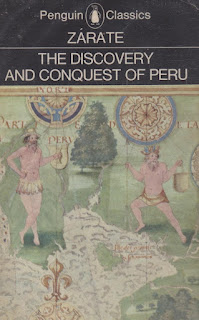 Ashoka: India's Lost Emperor by Charles Allen
Ashoka: India's Lost Emperor by Charles AllenMy rating: 5 of 5 stars
Charles Allen's 'Ashoka;India's lost emperor' reads like a detective novel. And a damn good one at that too.
One of the reasons Charles Allen quotes for writing the book is to record the contributions of 'Orientalists' who are/were vilified mercilessly in the past decades. The reason for this primarily starts with Thomas Macaulay and those who followed in his foot steps. So, here Charles Allen sets out to set the record straight.
We know a little about the Indophile employees of Raj who were here like nabobs immersed in the culture and land that is India.It it to their credit that most of the monuments of India's history still exists. They wielded power with a immense curiosity to learn, identify and protect.
It is difficult to come out of the book without feeling a lot of respect for people like John Marshall, Princep, 'Hindoo' Stuart, Cunningham and a lot of others who for all their faults of being part of the evil East India Company (John Keay be damned!!), pursued their natural instinct to learn about the country they were destined to rule and the effort put forth by them in learning the archaic languages of India like Prakrit, Sanskrit, Brahmi and more.
While reading the book, I was drawing a mental map of the landscapes they were traversing in horses, elephants and in Palkis relentlessly in their quest to uncover the secrets of India's past. From Kolkatta to Kandahar they travel, collect, put in crates and send. There are misguided attempts to break into the inscriptions, use the bricks of the stupas for construction but for every misguided attempt there is always one which forcefully preserves another.
Ashoka probably is an under-appreciated ruler. Probably the only one of his kind to rule by moral force and put that in inscriptions across India, it is difficult to find a reason for not celebrating him as the icon of India. It might be something to do with the religion he was supporting as well. However, the story of Ashoka, even today invokes admiration and I was reminding myself of Einstein's quote about another human being which can equally apply to this great man as well.
The uncovering of the Ashoka's story reads fascinating and the sheer number of people involved who contributed to this is staggering. There is the cavalry captain who takes an eye-copy of Dhauli inscription, one who puts a shaft into the Sanchi stupa, the one who uncovers Taxila in the Hindu Kush and Cunningham who connects all the dots and strides the stage like the colossal figure he was.
That made me think, why there was no references to Ashoka in the 2000 years since he ruled in any of the Indian texts in between. May be along with Buddhism he was forgotten but oral tradition should've remained and it was a surprise that it did not. And for all our pride about being the most ancient, it also tells something about us, Indians. Non-curious and ignorant of our history, to this day (visit some of our old temples!), we tend to take pride and vandalize immediately without a thought. Hmm.
At least the last 2 chapters of the book, if we are sensitive about the 'good' British, should be kept as part of curriculum for middle school students at least so that in the future, may be a few of them can grow up to be curious.
A Must read.
View all my reviews

1 comment:
nice review.
Post a Comment